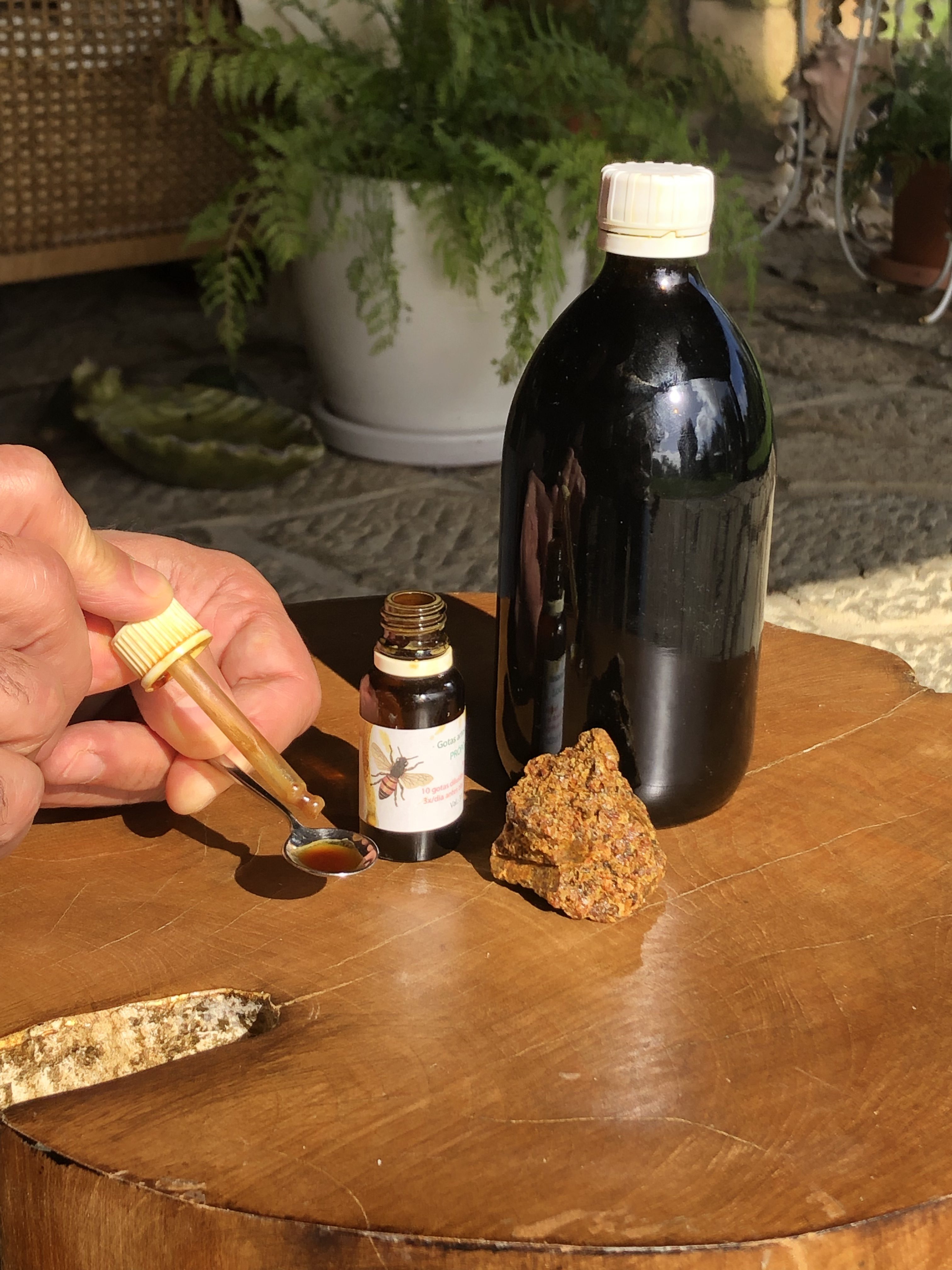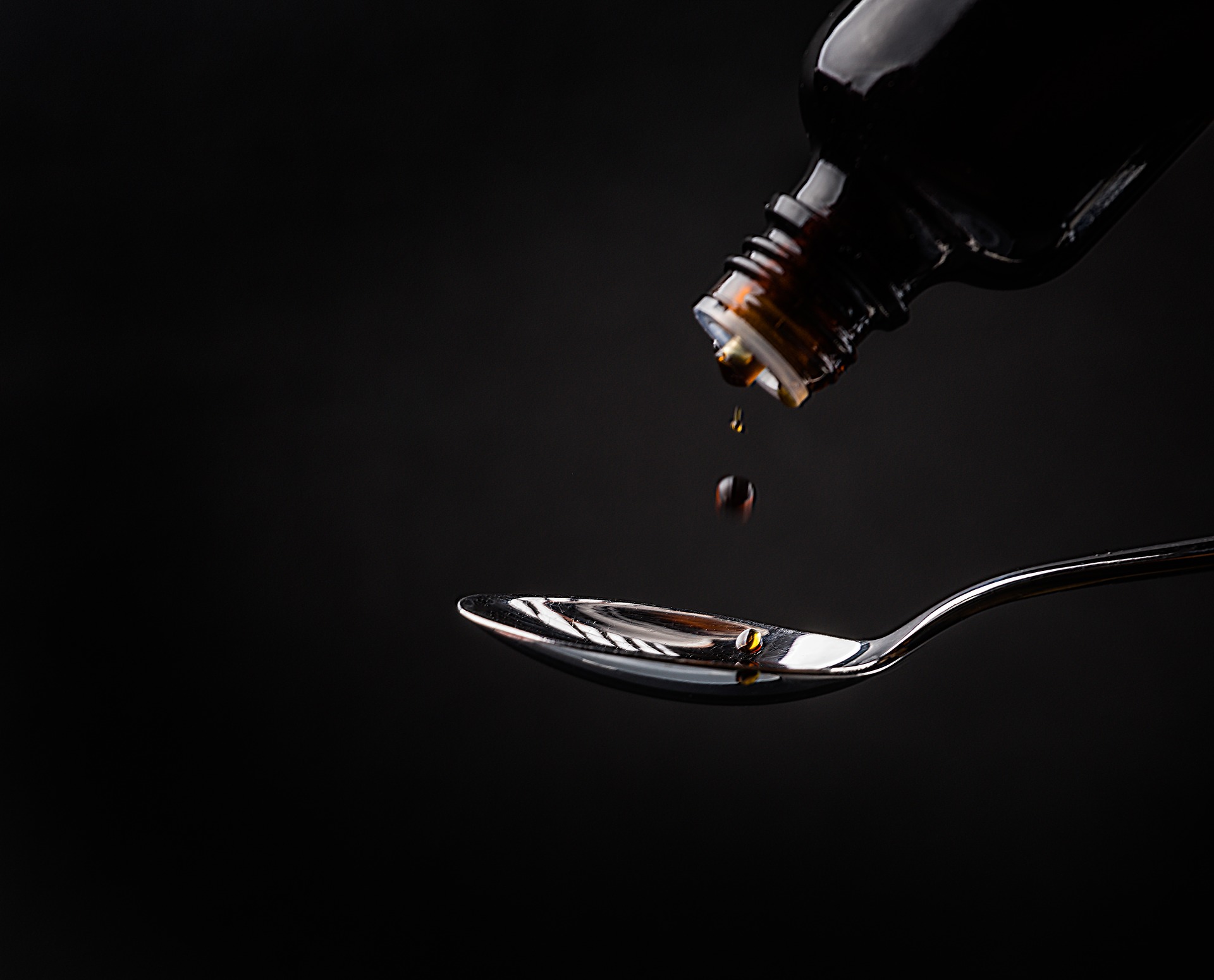
Propolis is a powerful and multi-acting natural antibiotic, as it is used both for internal and external use (in wounds, cuts and skin infections). There are, however, people who might be allergic to honey and its derivatives and also to propolis, presenting reactions as swelling, irritation of the skin where it was applied or even urticaria.
In order to avoid serious reactions due to allergy, it is recommended to do a sensitivity test before using the extract, for which it is only necessary to drip two drops of propolis on the wrists or forearm and wait about 30 minutes to see the reaction: if it starts to drool then you are allergic and should not consume propolis. Be aware that the skin turns yellow in the area where it was applied, but if you pass a little bit of alcohol it leaves or disappears over time.
Propolis is usually used as an extract and consumed by drops or in homeopathic granules wherein the dosage depends on the dilution. Ideally, it should be taken right after meals. There are also in the market ointments, sprayers and other types of applications, which contain propolis.
The consumption of propolis should always be advised by a natural product specialist, according with the Being and the current situation.

Wound healing
In wounds without any opening in the skin, you can directly apply the propolis. Although, in wounds with skin rupture with visible blood, it is advisable to moist a gauze with a bit of water and two drops of propolis, only after you should pass the gauze lightly in the place of the injury. The option of adding water and propolis makes the healing leave no mark on the skin. Be careful that in an open wound the action of propolis can cause a small burning mainly due to cereal alcohol, but is perfectly bearable. By spreading propolis on the wound you protect yourself from infections and the antioxidants of this natural antibiotic will accelerate the healing.

Cold, sinusitis or stomatitis
Propolis is effective in the destruction of a wide range of bacterias that are harmful to humans, and is therefore indicated in imbalances’ treatment named as angina, tonsillitis, pharyngitis, laryngitis, gingivitis, stomatitis, dental abscess, sinusitis, bronchitis, pneumonia , flu or sore throat, among others. Propolis also has an immunostimulating effect, that means, it stimulates the production of antibody-producing cells, thus strengthening the immune system against diseases and infections. In addition to strengthening the blood system.
The propolis consumption must, however, always be advised by a natural product specialist and be taken according to the condition of the Being and according to the situation of the moment.

Cold sore
Put a few drops of propolis in a compress or a swab and apply directly on the cold sore. After several applications, the cold sore will disappear thanks to the healing, anti-inflammatory and bactericidal action of propolis.

Teeth
A drop of pure propolis on the tooth or on the abscessed gums will help alleviate the pain due to its bactericidal action. However, this is a temporary option as you should as soon as possible go to a dentist to review and resolve the situation.

Acne and insect bites
Propolis can be used as an anti-inflammatory cream in the area of the skin affected by the insect bites, rashes or irritation. It is also effective in the treatment for acne, psoriasis, eczema and other infections.

Fungi and Mycoses
For the treatment of mycoses, three drops of propolis should be placed on the affected region at least twice a day for a few days. The bactericidal action of this natural antibiotic helps to recover.
This text is an awareness. Check before consuming if you are allergic. According to the season of the year and the moment in which you are, it is up to each one to feel whether to consume propolis. The dosage and frequency depends on the nature and physical condition of each Human Being.
Feel more about Propolis in:
A natural shield called Propolis




